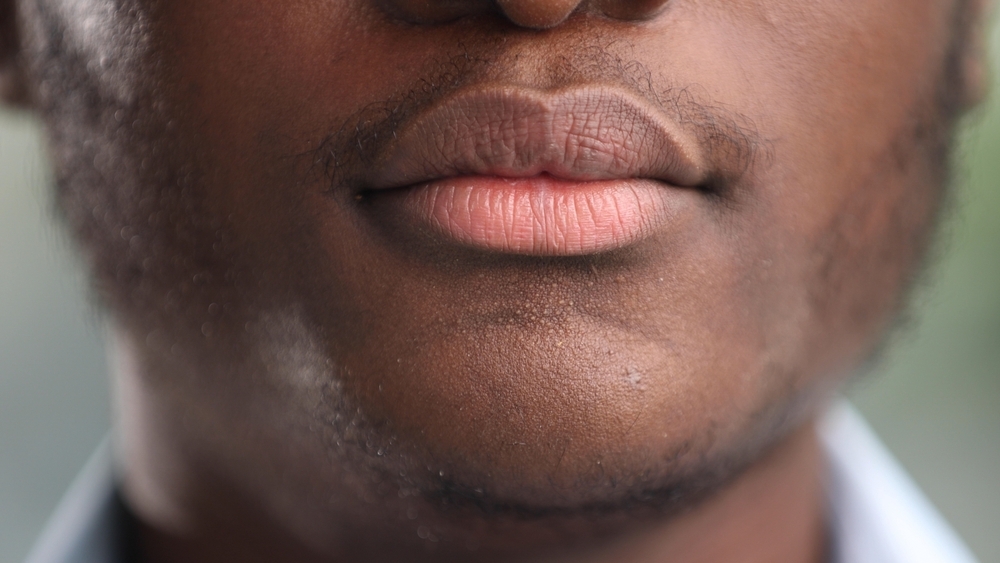Your skin covers your entire body: it's your largest organ. Yet traditional skin care routines primarily focus on the skin on your face. Thin facial skin does require extra care, but let's not forget another delicate and often overlooked area—the lips.
But do you need an entire lip skin care routine? In a nutshell, yes. Applying lip balm regularly is a great starting place. But you can do even more to protect your lips from becoming dry, chapped, cracked, and even sunburned. Here's how to protect your lips from the sun and achieve the soft, supple lips you've been going for.
The Importance of Lip Health
Your lips are vital for talking, eating, and expressing emotions. Though they're a small part of the body, the lips serve many purposes, and they aren't exempt from diseases and skin issues.
Your lip skin is thin and delicate, making it extra prone to irritation, dryness, and chapping—especially in the harsh winter months. Dry, frosty air can nip away the lips, leaving them dehydrated and prone to cracking. Sun exposure can also contribute to dry lips, increasing their vulnerability to peeling or scaling.
But dry, chapped lips aren't the only concern. The lips are also a popular spot for ulcers and blisters, which can appear both on the inside and outside of the lips. These sometimes uncomfortable concerns can arise from cuts or splits, and some are contagious.
It's also possible to develop sunburned lips from prolonged sun exposure, which can increase your risk of lip cancer. Fortunately, many lip health concerns are preventable, reversible, or treatable.
How to Build a Lip Skin Care Routine
Your lip skin care routine doesn't have to be as lengthy as your regular skin care routine, but a couple of extra minutes per day can go a long way. Here are some best practices for preserving your lip health.
1. Exfoliate Once or Twice a Week
Your skin is constantly regenerating itself by making new skin cells. The idea is to replace old ones, but sometimes they're slow to fall off, contributing to dry, dead skin cell buildup. Exfoliating can help speed up the skin cell turnover process, giving the skin a more youthful and revitalized appearance. It also helps soften and smooth out flaky lips.
To exfoliate your lips, use a premade lip scrub or make one at home using sugar mixed with honey or coconut oil. Alternatively, you can gently buff your lips with a damp washcloth or soft toothbrush.
Over-exfoliating can worsen dryness and irritation, however, so limit lip exfoliation to one to two times per week.
2. Apply Lip Balm throughout the Day
Many lip issues—like peeling, cracked, and chapped lips—result from dryness. Keeping the skin hydrated both prevents and improves dryness, which reduces your chances of encountering winter-induced chapped lips. This also helps prevent cuts that could lead to sores or blisters.
One of the best ways to hydrate your lips is by using lip balm. The American Academy of Dermatology (AAD) suggests applying lip balm multiple times throughout the day and before bed to help heal cracked or dry lips.
When looking for a lip balm, the AAD recommends formulas that contain moisturizing ingredients, such as Castor Seed Oil, ceramides, Dimethicone, or Mineral Oil. Try EltaMD UV Lip Balm Broad-Spectrum SPF 36, which restores supple lips with Castor Oil, Olive Oil, and Vitamin E while protecting delicate lip skin from sun damage.
Avoid lip balms with potentially irritating ingredients. Stick to fragrance-free, hypoallergenic formulas, and steer clear of camphor, eucalyptus, and menthol.
3. Remember Sun Protection
Sunscreen is often labeled for the face or body, which may make you wonder: can you put sunscreen on your lips? Yes, you can, and here's why you should.
Your lips' outermost layer consists of an epidermis like the rest of your skin. So, it's also prone to visible signs of aging and skin cancer. Wearing broad-spectrum sunscreen regularly can help safeguard against these risks.
When it comes to how to protect your lips from the sun, you can use an SPF lip balm like EltaMD UV Lip Balm Broad-Spectrum SPF 36, or apply facial sunscreen to your lips. For example, EltaMD UV Luminous Broad-Spectrum SPF 41 is a mineral sunscreen that's suitable for fragile, sensitive skin. It also has a slightly rosy tint, so it's perfect for adding a flush of color.
To keep your lips properly protected, remember to reapply sunscreen every two hours. Wearing a wide-brimmed hat can also help shield your lips from the sun's ultraviolet (UV) rays.
4. Hydrate from the Inside Out
If you struggle with dry lips, consider increasing your water intake through fluids and water-rich foods, like watermelon, cucumbers, celery, and apples. Using a humidifier in your bedroom can also add moisture back into the air to hydrate your skin while you sleep.
Perfecting Your Pout
When nursing dry lips back to a hydrated state, avoid biting, picking at, or licking them. This can create cuts or cracks in the skin, which can allow bacteria to enter and eventually lead to sores or infections. While licking your lips may temporarily relieve dryness, it only worsens them in the long term, so resist the urge. Instead, channel your energy into devoting a little extra time to your lip skin care each day. The results will be well worth it!
